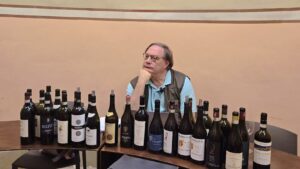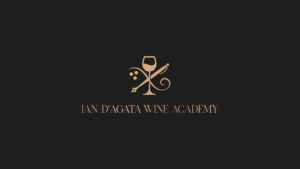A Legacy of Terroir and Excellence
Lucashof Winery, nestled in the heart of Germany’s Pfalz region, carries a legacy of passion and craftsmanship that dates back to 1962. Founded by Edmund Lucas, the winery has evolved over three generations, with each successor contributing to its rich heritage while embracing innovation. Today, under the stewardship of Philipp Lucas, Lucashof continues to honor its roots while exploring new frontiers in winemaking.
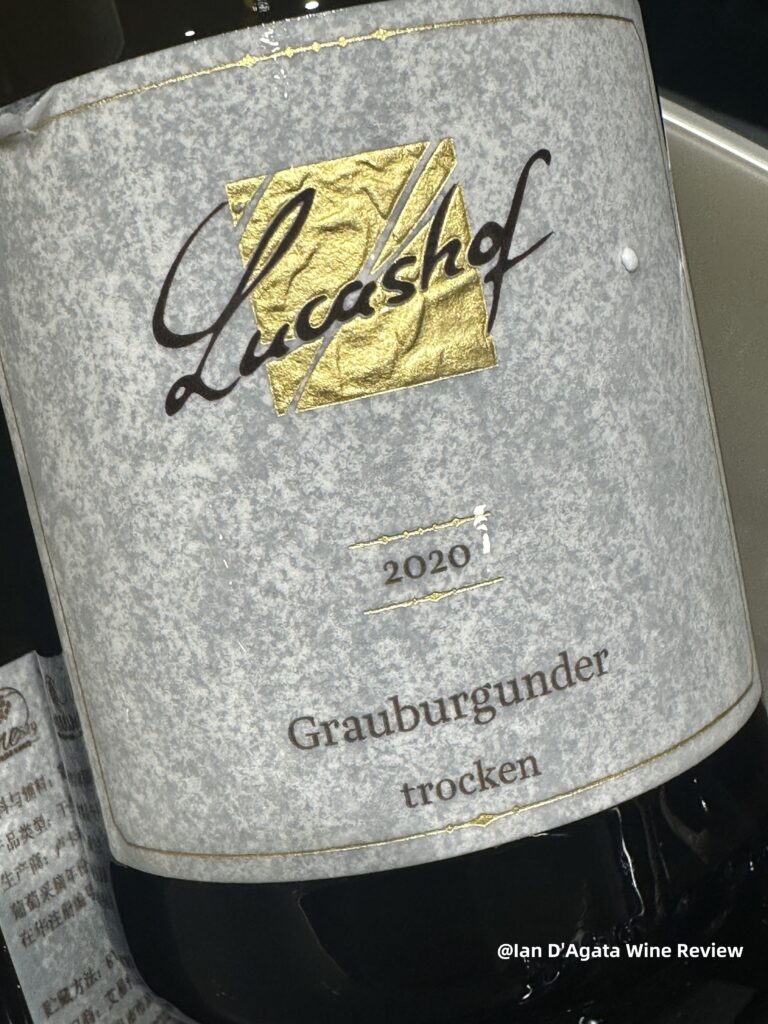
The name “Lucashof,” derived from the family surname Lucas, reflects the winery’s profound connection to its history and mission. More than just a label, it symbolizes a commitment to preserving the essence of the land and the family’s dedication to the craft. From its inception, Lucashof has been a beacon of quality and tradition, with each generation adding its distinct vision to the narrative. And it certainly helps that the family farms not just some of the best vineyards in the Pfalz and of all Germany, but of the world.
Vineyards: The Foundation of Excellence
Lucashof owns twenty-five hectares of vineyards and collaborates with local growers to extend the its total area under cultivation to thirty hectares. The winery places significant emphasis on older vines, with an average vine age exceeding twenty years. These deep-rooted vines can draw essential minerals from the soil, contributing to the wines’ unique complexity, depth, and a strong reflection of the region’s character.
The vineyards are primarily located in and around Forst, a small town in the Pfalz blessed with some vineyard sites of amazingly high quality: simply put, it’s an area renowned for its exceptional terroir since time immemorial. The diverse soils, including of volcanic, sandy, and calcareous type, provide an ideal environment for cultivating Riesling, Lucashof’s signature grape variety. Lucashof remains steadfast in its focus on Riesling: this variety, known for its unparalleled ability to express terroir, continues to be the cornerstone of the winery’s production, embodying the essence of the Pfalz region. Riesling captures the unique characteristics of the region, ensuring that every bottle reflects its origin. Furthermore, Lucashof’s nearly two decades of organic certification underline its commitment to sustainability. By adopting organic viticulture, the winery not only safeguards the long-term health of its vines but also ensures a more genuine expression of the Pfalz region’s diverse terroirs. By allowing specific microbiota to grow in its specific vineyard soils thanks to organic farming, the translation of terroir into a galss of wine ought to be made that much easier and likely.
Winemaking Philosophy: Letting the Vineyard Speak
At Lucashof, the vineyard is at the heart of winemaking. Guided by the philosophy, “As little intervention as possible, as much as needed,” the team emphasizes preserving the natural characteristics of the grapes and the individuality of each vintage.
Year-round vineyard management is key to this approach. From pruning during winter to canopy management in summer, meticulous care is given to every step of cultivation. Once harvested, the winemaking process focuses on maintaining the purity of the fruit, ensuring that each bottle reflects the unique attributes of its origin. At Lucashof, a thoughtful blend of modern and traditional techniques are employed. Stainless steel tanks are used for 70% of the wines to preserve freshness and precision, while 30% are aged in oak barrels to enhance texture and complexity. This harmony of methods enables the winery to craft wines that authentically express the terroir of Forst and its surroundings.
Forster Ungeheuer and Pechstein: Icons of Elegance and Terroir Expression
Forster Ungeheuer and Forster Pechstein are among Germany’s most prestigious vineyards, renowned for their unique terroirs and exceptional Riesling wines. These two vineyards could not be mpre different and effectively exemplify how terroir profoundly shapes the flavor and structure of wines.
The soil of the Forster Ungeheuer is a complex mix of colored sandstone, limestone debris, and basalt, imparting an elegant minerality and balanced fruit profile to its wines. This intricate soil composition is reflected in the wine’s layered aromas, featuring ripe lemon, grapefruit peel, white peach, and apricot, complemented by subtle notes of honey and the refined fragrance of white flowers like honeysuckle and acacia. This may be bedsides the point, but it is (and its wines) one of Ian D’Agata’s, our Editor-in-Chief, favourite vineyards in the world. The Forster Pechstein, on the other hand, is distinguished by its volcanic soils that are very rich in minerals and that imbue its Riesling wines with distinctive minerality and exceptional complexity. The Forster Pechstein Riesling wines perfectly illustrate the influence of terroir on wine flavor and structure. The wines from both vineyards are remarkable in their youth but truly shine with medium to long-term aging. Over time, their flavours become more intricate, and their acidity integrates seamlessly into the overall structure, enhancing their elegance and balance. Through these terroir-driven wines, Lucashof Winery not only highlights the natural character of the Pfalz region but also makes a significant contribution to the study of terroir expression and the advancement of the wine industry.
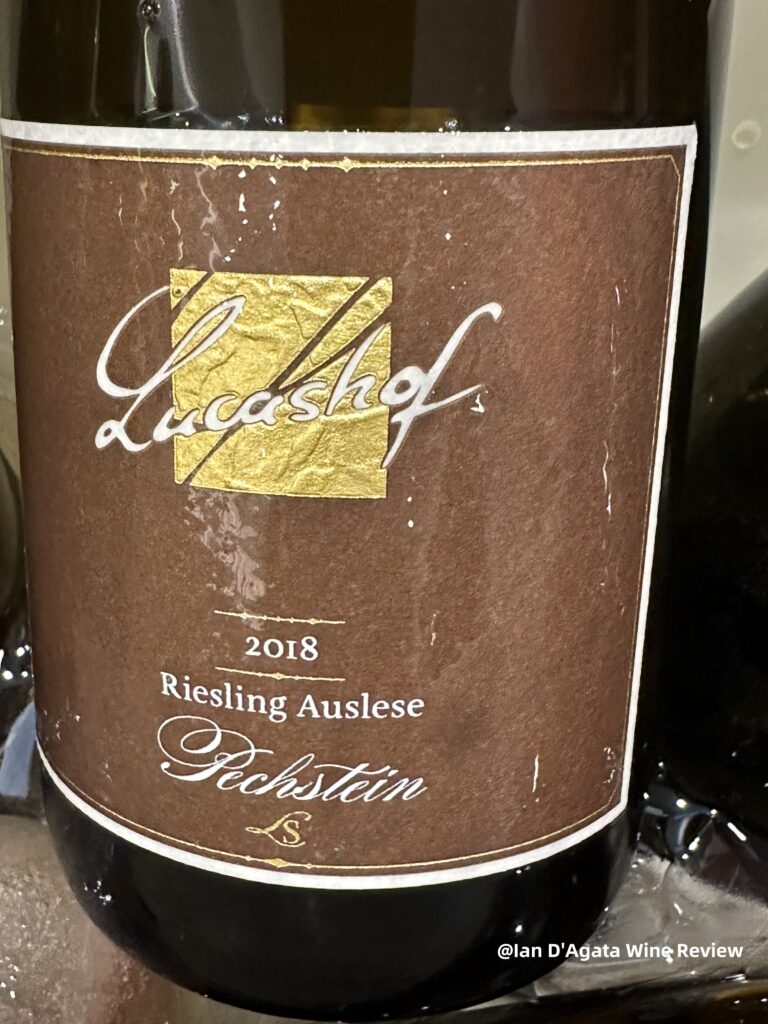
The Influence of Vintage: 2020 and 2021 in Pfalz
The 2020 and 2021 vintages in Pfalz reflect contrasting climatic conditions, each leaving a distinct imprint on the wines from these renowned vineyards.
The 2020 growing season was warm and dry with relatively stable weather conditions. While not as extreme as 2018 or 2019, the low rainfall throughout the season caused drought stress in certain vineyards, particularly those with poorer soils. Early ripening was a hallmark of this vintage, with harvest starting in early September. The dry conditions minimized disease pressure, allowing for healthy fruit with minimal intervention. Wines from 2020 exhibit ripe fruit characteristics, with elevated sugar levels and lower acidity, resulting in a rounder, fuller-bodied style. By contrast, 2021 was a cooler and wetter year. The humid growing season posed challenges for disease management, and the harvest was delayed until early to mid-October. The extended ripening period allowed the grapes to develop complex flavors while retaining higher acidity. Compared to 2020, the wines of 2021 are marked by their crisp, refreshing profile and pronounced acidity, showcasing a more vibrant and cool-climate expression of Riesling wines.
Adapting to a Changing Climate
Climate change presents both opportunities and challenges for winemaking enterprises. At Lucashof, warmer temperatures have enhanced grape ripening, particularly benefiting Riesling. However, the changing environment demands a re-evaluation of traditional practices. Thefore, the winery has adopted adaptive measures, such as optimizing pruning techniques, improving water management, and adjusting harvest timings. Its organic practices play a crucial role in maintaining soil health and vine resilience, ensuring that Lucashof’s wines remain sustainable and true to their origins. Lucashof Winery exemplifies the harmony between tradition and innovation, nature and craftsmanship. Its dedication to organic practices, vineyard-driven winemaking, and the expressive potential of Riesling has positioned it as a key player in the preservation and celebration of the Pfalz’s viticultural heritage.
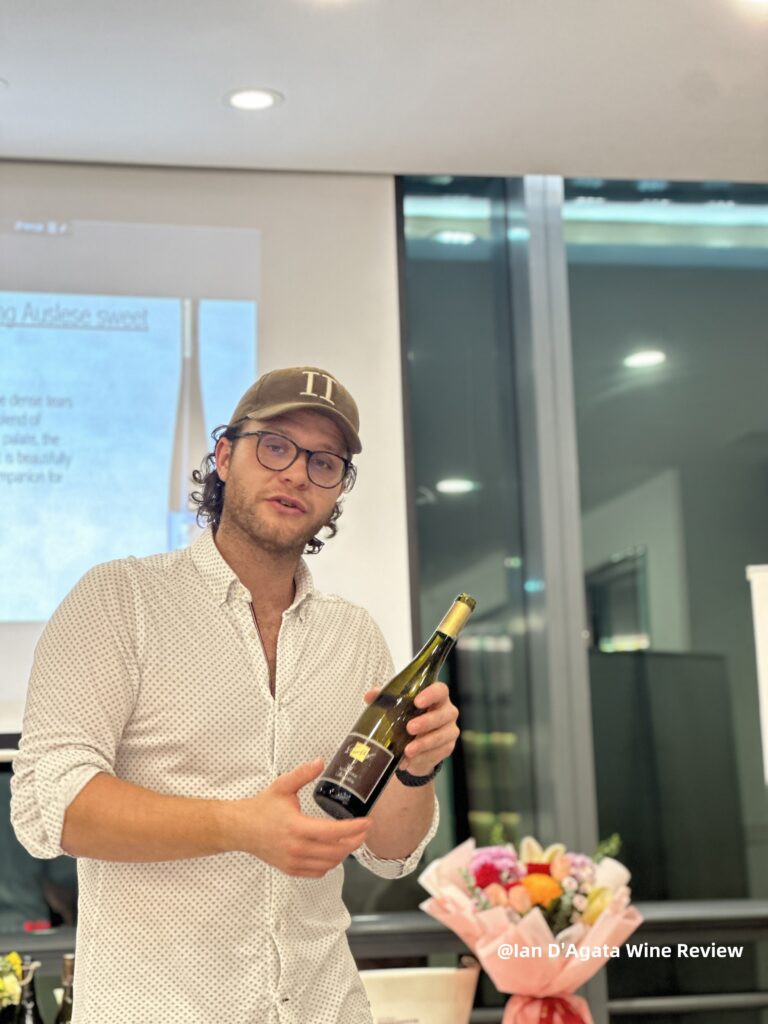
The wines in this tasting report
In November 2024, at a Lucashof winery dinner in Suzhou, China, I had the pleasure of meeting the winery owner, Philipp Lucas. During our conversation, we arranged an interview, which was later conducted through email for an in-depth discussion.

